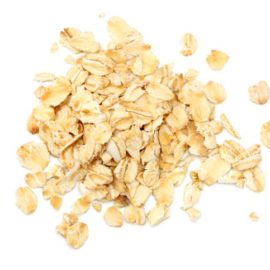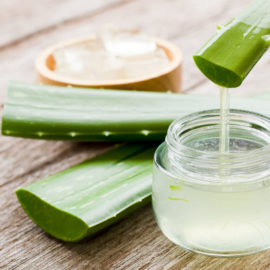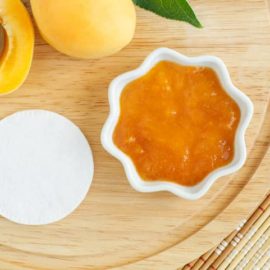The use of glycerin for curly hair responds to this type of hair’s particular needs for managing moisture, bringing a new life to dehydrated curls.
As a water-soluble alcohol, glycerin presents an outstanding capacity for moisturizing, conditioning and softening, qualities that have turned it into a “hero ingredient” when it comes to moisturizing.
Acknowledging consumers’ demands, many cosmetic and personal care brands have been adding glycerin to skin and hair care products, including those targeting curly hair specifically. It has also become a preferred ingredient as scalp health claims gain popularity among health-oriented and increasingly informed consumers.
But what are the pros and cons of using glycerin for curly hair and are there any other potential natural ingredients that can act as an alternative to glycerin? Keep reading to find out.
Content
Glycerin for curly hair: the pros and cons
As we’ve stated in the introduction, glycerin is a water-soluble alcohol that, obtained from synthetic, animal and vegetable sources, acts as a powerful humectant, conditioner and moisturizer.
Its functioning is quite simple: it attracts, absorbs and retains moisture from the surrounding air. This means glycerin is also responsible for generating a protective barrier that fixes humidity into hair follicles and scalp skin.
Knowing the crucial importance of moisture in preventing issues such as dandruff and high-sebum secretion in scalp, it’s no surprise glycerin has become a common and popular ingredient for hair health enthusiasts and the well-mastering movement.
Because of these outstanding functions, glycerin for curly hair has long been hailed as a robust moisturizing agent, capable of softening and conditioning curly hair, especially responding to the particular needs of dehydrated or dry hair.
The outcome of using glycerin for curly hair is often impressive and has driven growth for this ingredient lately: curls are more defined and hair frizz is reduced.
However, glycerin’s powerful humectant capabilities can actually become a problem in some cases:
- First, if ambient humidity is already high, glycerin will absorb too much of it and make excessive moisture an issue.
- Secondly, glycerin might not be the right humectant method for someone who suffers from hygral fatigue or presents a high hair porosity, since hair porosity refers to hair’s capacity to absorb and retain moisture. So, in this case, glycerin for curly hair might not be the right method to achieve optimal moisture, as it will generate excessive humidity.
Alternative natural sources to glycerin for curly hair
As consumers are increasingly informed about the role of humidity in hair health, powerful narratives that can be built around great moisturizing products for hair health.
In light of this potential, beauty and personal care brands are looking for other natural ingredients that might help them make a difference and stand out in an increasingly competitive market.
In fact, as glycerin remains quite an obscure ingredient claim, brands can make the most of applying “foodie trends” in the cosmetic market. In other words, consumers are now easily attracted towards well-known, plant-based and food-related ingredients applied to cosmetic products.
This is where oats take center stage. Compared to glycerin, oats present similar moisturizing capacities with added benefits such as a high content of saponins and the presence of powerful polymer chains with hydrophilic groups (hydroxyl, carboxyl and amine groups), capable of binding water molecules.
The combination of these factors means oats become a key ingredient to include in hair health products that will help maintain curly hair smooth, glossy, and moisturized.
At the same time, the choice of oats will help brands join the expansion in the global natural hair care product market: valued at USD 8.74 billion in 2019, this market is expected to grow at a compound annual growth rate (CAGR) of 4.7% from 2020 to 2027 driven by increasing consumer interests in natural ingredients and solutions.
Provital’s Oat extract thus becomes the right alternative to replace glycerin from curly hair formulations and achieve the same moisturizing and hair-repair effects .
As an additional advantage, this extract makes the most of consumers’ current preferences for natural ingredients while also guaranteeing additional benefits:
- Antibacterial and antioxidant benefits.
- COSMOS-approved ingredient
- 99.5% natural origin (ISO 16128)
- Water soluble
- Filmogenic
- Purifying
- Paraben free
No comments yet
There are no comments on this post yet.





Leave a comment